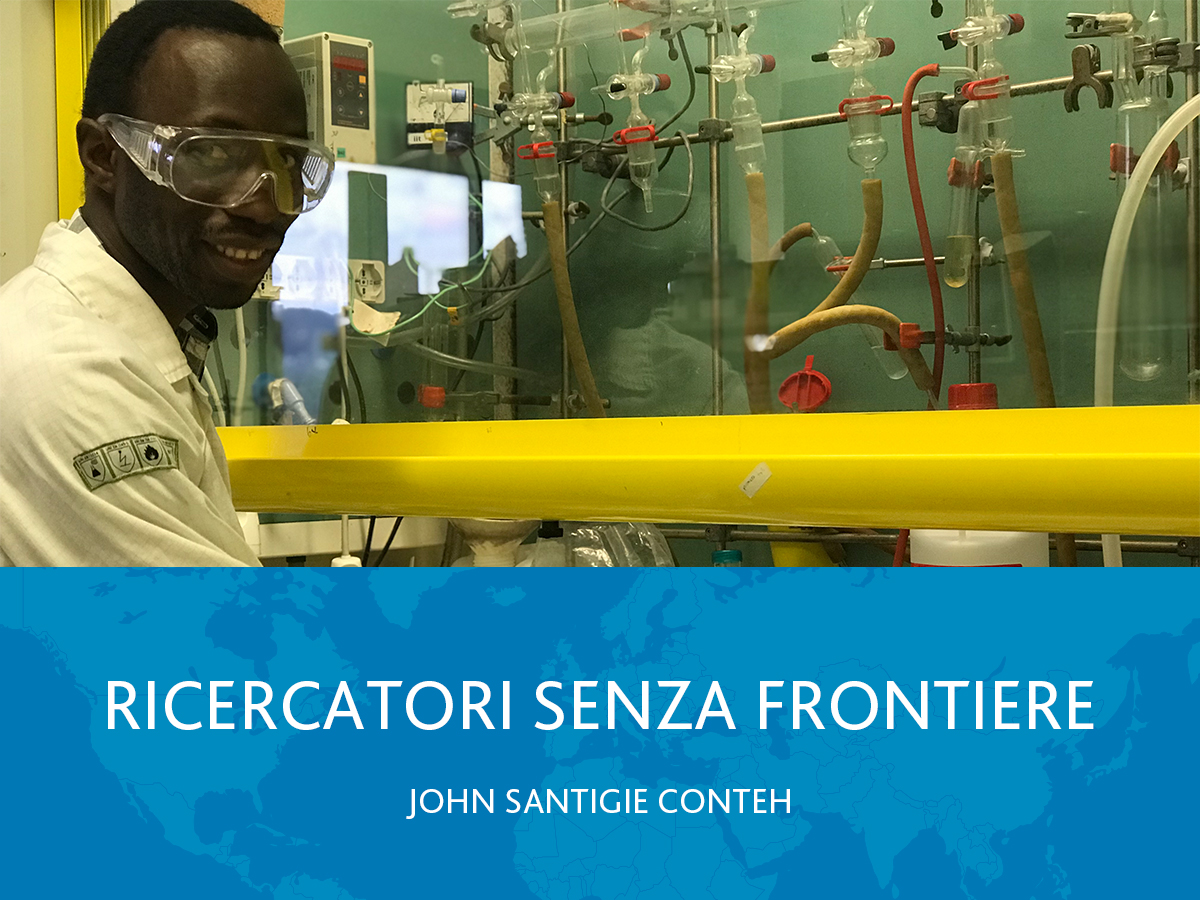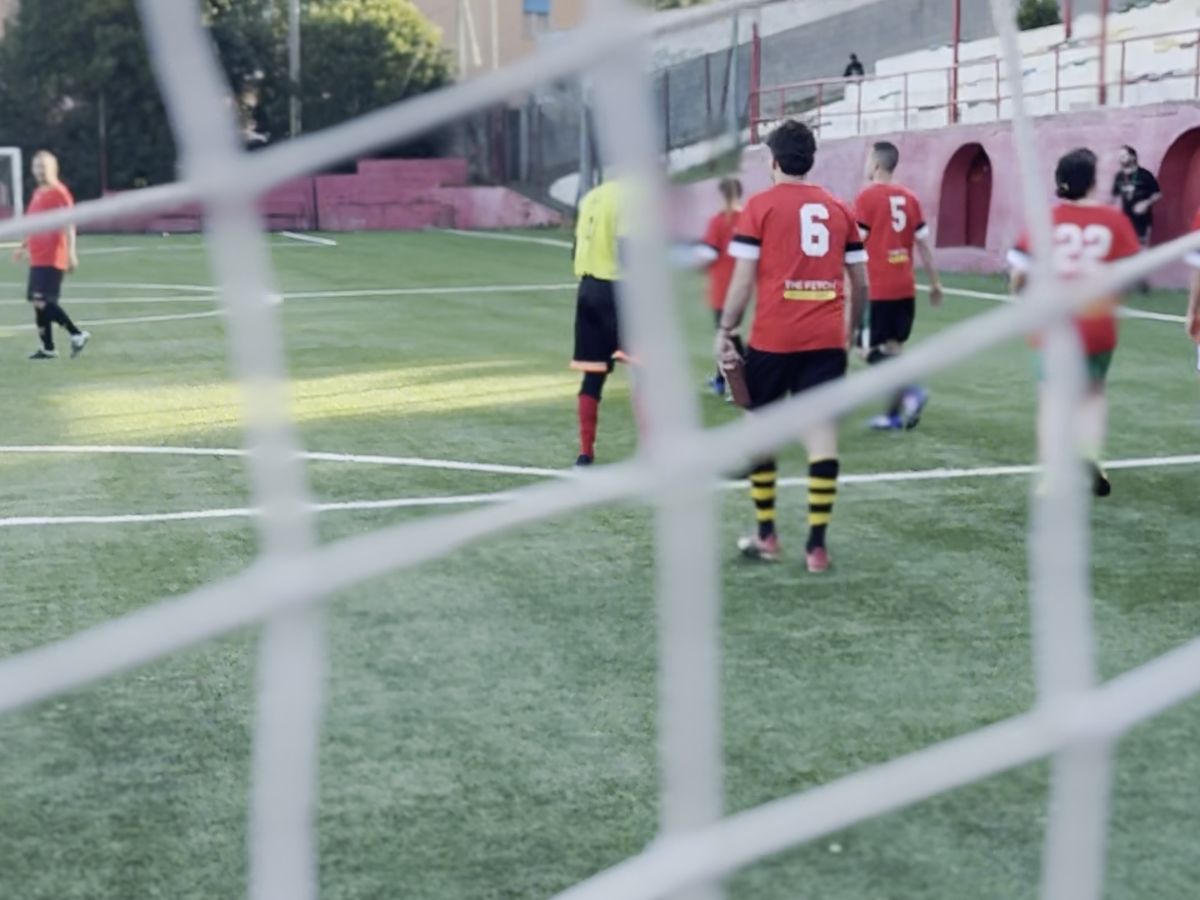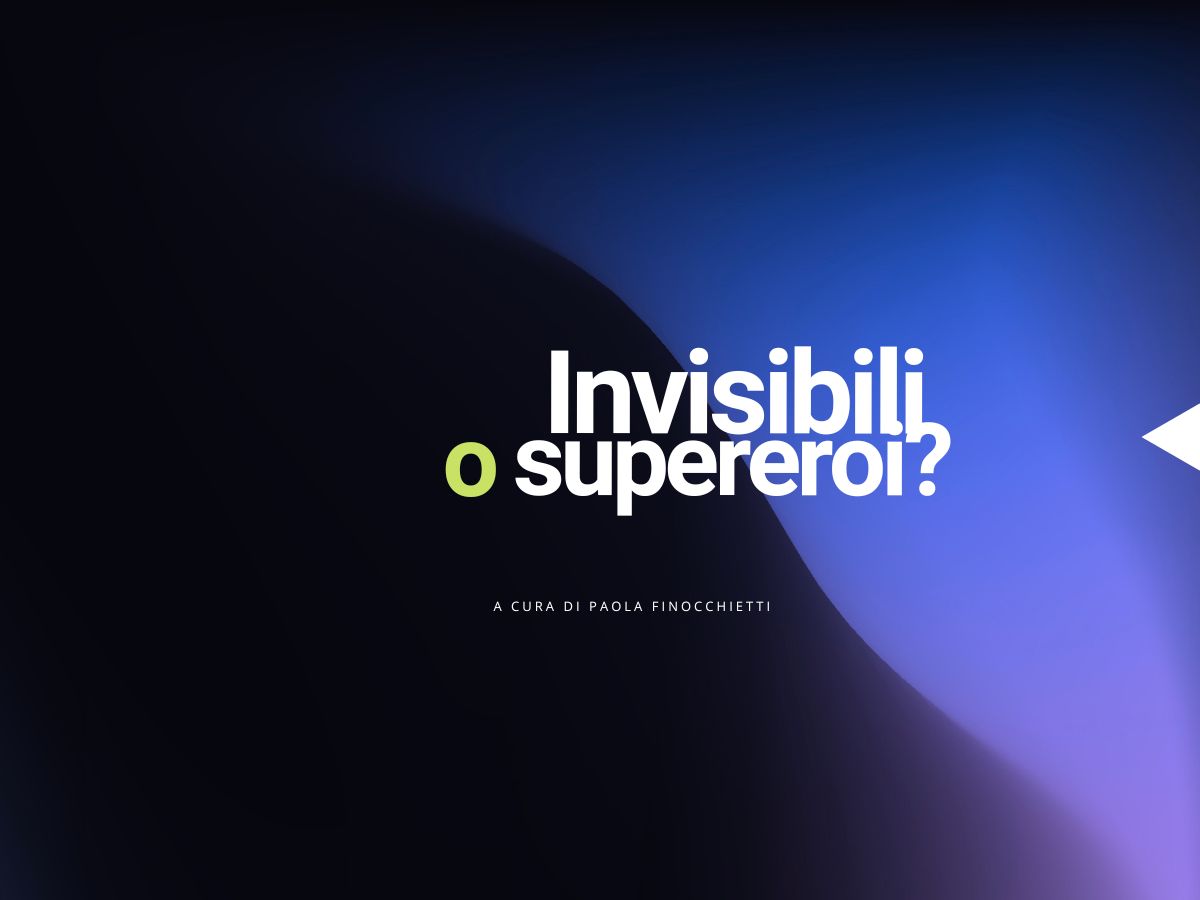John Santigie Conteh, born in western Africa, has been living in Italy for one year. He represents one of the 60 countries from which many IIT collaborators come from
John is working as a PhD in the IIT “Nanomaterials for Biomedical Applications” group led by Teresa Pellegrino. Here they develop responsive nano systems able to carry drugs in tumoral cells. John obtained his degree in Science in Sierra Leone and his MBA in Chemical Engineering at the University of Leeds. He has been living in Italy for one year and his homeland is 6000 kilometers away from Genoa.
Situated in the heart of the Atlantic African coast, Sierra Leone is known to the most for its well-known civil war that lasted over 11 years, and the just as devastating trajedy of Ebola virus epidemy whose remaining outbreaks were extinguished only in 2016, as the World Health Organization states.
The most famous guidebooks, such as Lonely Planet, describe Sierra Leone and its capital Freetown saying that “when you emerge from the airport, your eyes blinking after a night flight, you find yourself on a wood bridge of a seaport surrounded by a background of mountains, beaches and palms so idyllic that you ask yourself if it is real”.
John indeed talks about Freetown and the Northern tribal village where he was born, Makama, as a place with a lot of similarities with Liguria. First of all, a tropical place where it often rains, “surrounded by amazing green hills and close to the Atlantic Ocean. Wandering on Genoa’s beaches reminds me of my home country”.
Can you tell me a dialectal Limba expression you are particularly attached to?
My favourite expression is “Meneh yi nia muyu, yin kor kutu wo thimo yi” that literally means “if you persist enough, in the end you will obtain the results you desire”. In fact, to persist means to pursue your dreams thorugh challenges.
(Limba – Hulimba – is an ancient dialect spoken in Guinea and Sierra Leone)
Bashful expression, a shy and reserved way of hiding his past behind a veil and leaving out some details about his country by wearing proudly his researchers robes that characterise him today. Only focused on his job and career, he doesn’t get lost in detailed descriptions, not even when I ask about Africa and Sierra Leone.
John, Sierra Leone is amongst the countries with the lowest development index in the world despite all the efforts to achieve a social balance and despite the economic boost caused by agriculture, housebuilding and iron exportation (cit. The World Bank Group). What are your thoughts on your country’s future?
I think my country has a bright future. We are a very resilient nation that has overcome many challenges. I would say that our economic perspectives are promising, considering the main goal of our government. They launched a development plan on human capital thanks to a free education programme for children who go to school. Moreover, farming and mining activities are gradually growing.
Sierra Leone was devastated by the Ebola epidemy that lasted almost a year. There have been 8.704 infected people and 3.589 deaths. The World Health Organization in 2015 declared the end of the epidemy in Sierra Leone.
John, where were you during those months and how did you feel about it?
I was at home when the epidemy started, even though I was travelling a lot for a training course in Malaysia. Seeing our country farmers die for such a tremendous virus was scary and painful.
The resilience with which he tells me about certain events is related to Africa, to the famous African ability to adaptation in a land full of injustices and suffocating landscapes and sunsets for western eyes. To resist with a simplicity of habits to which white people are not used to anymore, just as John from Makama says, “Limba culture is made by simplicity, humility and fun. In festive seasons in most of the villages squares traditional ballades are organized and people cannot wait to dedicate to that recretation!”.
How do you spend your free time? What do you like about Italian and Sierra Leonean food?
Pizza! And rice with okra soup, which is a vegetable I also find here!
My passion is doing God’s will by helping humanity as my religion says (Living Word Charismatic Church). I like it in Bolzaneto because it’s close to work, but also because I can go to church several times a week.
During my free time I enjoy travelling through Italy, but mostly programming on my laptop.
He is always talking about work and passions that are work-related. If I ask about a good memory from the past, he doesn’t tell me about his country, instead he talks about the fellowship he won in the UK in a prestigious university that opened the doors for him and gave him the basis for his career. He talks about IIT as a “high-level scientific research institution with a multicultural work environment” and he tells me about his best friends and colleagues Thanh-Binh, Ana, Ricardo
How important are school and education to you?
My parents weren’t as lucky as me, but they guaranteed the basic school education for me and for my brothers and sisters. Being born from non-educated parents made me realise while growing up that education is vital for success and wellbeing of my whole family. My good school achievements gave me the opportunity to win some scholarships organised by my country and by Commonwealth and to be here today.
It wasn’t an easy journey.
What is your secret wish? Would you want to go back to Sierra Leone one day?
I would like to keep doing research in order to develop systems able to positively influence human wellbeing.
And yes, maybe one day I will go back to my country to give my contribute to the academic, industrial and research world.





